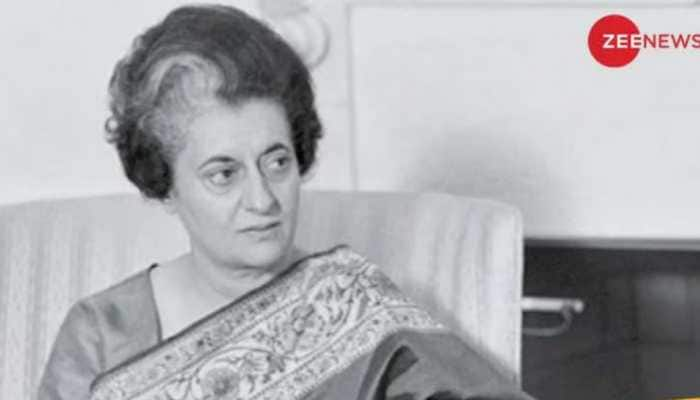Nicolas Anelka `did not promote anti-Semitism`
Nicolas Anelka could not be proven to have intentionally promoted anti-Semitism by performing a `quenelle` salute, the independent regulatory commission that banned the West Bromwich Albion striker revealed on Thursday.
Trending Photos
)
London: Nicolas Anelka could not be proven to have intentionally promoted anti-Semitism by performing a `quenelle` salute, the independent regulatory commission that banned the West Bromwich Albion striker revealed on Thursday.
Anelka, 34, was given a five-game suspension, as well as an £80,000 (97,00 euros, $133,000) fine last week after making the gesture during his side`s 3-3 draw at West Ham United in the Premier League in December.
The body that imposed the ban revealed the reasons for its decision in a 35-page report released on Thursday, in which it stated that the `quenelle` is "strongly associated with anti-Semitism".
However, the commission said that it was not satisfied that Anelka intended to "express or promote anti-Semitism by his use of the quenelle".
Its report also revealed that the Football Association had unsuccessfully pushed for a stronger sanction than the mandatory minimum five-game ban.
The three-person commission revealed that it had studied performances and interviews given by French comedian Dieudonne M`bala M`bala, who was responsible for inventing the `quenelle` salute -- one arm straightened and pointed downwards, the other held across the chest.
The comedian, known simply as Dieudonne, has been prosecuted for anti-Semitism in France and the commission found that "Dieudonne is strongly associated with anti-Semitism and, as a result, we found that the quenelle is strongly associated with anti-Semitism".
It added: "We agreed with the FA that it is not possible to divorce that association from the gesture.
"When Nicolas Anelka performed the quenelle on the 28 December 2013, it had that association; it was strongly associated with and contained a reference to anti-Semitism."
However, the commission added that "the question of whether objectively the quenelle contained a reference to anti-Semitism is different from the question of whether Nicolas Anelka is an anti-Semite and different from the question of whether he intended to express or promote anti-Semitism by his gesture".Accordingly, the commission decided that "on the evidence before us we were not satisfied (to the requisite standard) that NA (Anelka) was or is an anti-Semite or that he intended to express or promote anti-Semitism by his use of the quenelle".
The report states that the FA pushed for "a longer than five-match suspension" because Anelka had contested the charge, but the commission found that there was no basis for that stance in the organisation`s rules.
The commission compared the case with Liverpool striker Luis Suarez`s eight-match ban for racially abusing Manchester United`s Patrice Evra in 2011, highlighting that whereas Suarez did so on at least five occasions, Anelka`s was a one-off action.
"(Suarez`s) eight-match suspension was imposed for conduct with five identified aggravating factors including the repeated use of the word "negro" or "negros"," the commission said.
"In our view that was clearly a more serious example of an `Aggravated Breach` than the (Anelka) instant case."
The commission`s report also revealed that in a witness statement, Anelka claimed that he had performed the `quenelle` "purely to say hello to my friend, Dieudonne M`bala M`bala, as I knew he was watching the game".
Anelka also said that he had performed the gesture again after scoring for a second time in the game at Upton Park, but his claim formed no part of the FA`s case against him.
Anelka was provisionally suspended by West Brom after news of his ban was announced, pending the end of the FA`s disciplinary process, which raises the possibility that he may not play for the club again.
The former France striker had insisted in the immediate aftermath of the incident that he was "neither racist nor anti-Semite" and had merely performed the `quenelle` as a "dedication" to Dieudonne.
Anelka added that despite attending a performance by the comedian, he did not understand that one of Dieudonne`s characters, `Jacky`, was dancing in a concentration camp uniform and did not accept that his friend was anti-Semitic.
The forward said that although he was educated in France (where the Holocaust is part of the curriculum), he knew nothing of "Jewish stories" and that the quenelle was an anti-Semitic gesture.
Both Anelka and the FA now have seven days in which to appeal although it is thought unlikely either party will challenge the commission`s ruling.
Anelka has played for some of Europe`s biggest clubs, including Arsenal, Chelsea and Real Madrid, but has a reputation as a troublemaker, having notably been sent home from the 2010 World Cup in South Africa and subsequently banned for 18 matches after clashing with France coach Raymond Domenech.
Stay informed on all the latest news, real-time breaking news updates, and follow all the important headlines in india news and world News on Zee News.
Advertisement
Live Tv
Advertisement







)
)
)
)
)
)
)
)
)
)
